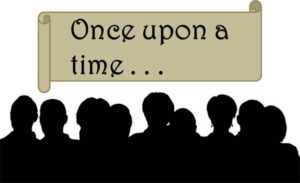Welcome to Week Six of ‘Writerly Witterings,’ my weekly blog which addresses and gives advice every week on an aspect of the writing process.
I love being part of the writing community, where we can offer and receive support and strategies to each to other. I particularly love being a creative writing teacher where I can impart all I’ve learnt over many years of writing, whilst never, ever stopping learning myself. We can only ever get better as writers.
I received a couple of messages after last week’s post ‘Creating a Setting,’ saying it contained some useful suggestions. It seems a popular one is the advice to physically sit in the setting you are bringing to the page, whilst you are actually writing it.
One of the best pieces of advice for all writers is ‘read, read, read.’ Good and not-so-good books. In and out of your own form, theme and genre. Never underestimate the power of immersing yourself in the craft of other writers, and how it infiltrates and improves your own work.
As a reader, I’m amazed by how quickly I need to be ‘grabbed.’ If a writer hasn’t got me within the first couple of pages, then they’ve usually lost me, in the case of a novel or a life story. But with a poem or a short story, I need to be hooked in within the first couple of lines.
This week’s blog post focuses on this aspect of writing, ‘hooking your reader.’ Or as I say as a crime writer, grabbing your reader by the throat and not letting go!
So what strategies can we use?
· Avoidance of backstory. Go straight in with what’s happening NOW. Backstory can be ‘drip-fed’ through the rest.
· Introduce our central character straight away. See ‘creating a character’ for more advice on this.
· Let our readers know where they are. Offer something of the setting.
· Have the character speaking or have something happening. Go in at a point of action, rather than description.
· Offer something of the tone of what you are writing. If it’s crime for example, give a hint of this. Or humour. Or fantasy.
· Give a whiff of feeling or emotion. This what really hooks readers. If they’re made to care.
 Of course, it’s difficult to include all of these aspects in the first paragraph or two, but if you can hit as many of them as possible, you’ve a better chance of really capturing your reader. Your only challenge then is to continue that strength of writing as your work continues …
Of course, it’s difficult to include all of these aspects in the first paragraph or two, but if you can hit as many of them as possible, you’ve a better chance of really capturing your reader. Your only challenge then is to continue that strength of writing as your work continues …
Going back to reading, look at how other authors open their stories. What grabs you, or doesn’t? Look back at stories you have written. How many of the above aspects have you included? In this busy age of little time, readers can be quite unforgiving and many won’t persevere beyond more than the first couple of pages.
Feel free to post into the comments about what works for you as a reader first, and as a writer. I post a new ‘Writerly Witterings’ each Monday afternoon, which I follow up with a Facebook Live each Saturday at 5:00. There’s a couple of people who’ve joined me for every single one I’ve done so far – thank you so much! You’re all welcome to join me to share your own strategies and ask questions. The five Facebook lives that I’ve done so far are all still available on my Facebook page.
And just before I go, can I draw your attention to a Life Writing Retreat, which I’m co-leading (1-4 April) at Acorn Lodge in Harrogate with Ali Standen (Life Coach and Hotel Proprietor) We still have places available for anybody wishing to come and be looked after, whilst being immersed in their writing and the exciting workshops and activities. Click here for more information.
Thanks for coming along to read this post, next week’s ‘Writerly Witterings’ will be all about dialogue. Have a great writing week.
Maria
©11/2/19
Welcome to Week Six of ‘Writerly Witterings,’ my weekly blog which addresses and gives advice on an aspect of the writing process.
I love being part of the writing community, where we can give and receive support and strategies for each to other and I particularly love being a creative writing teacher where I can impart all I’ve learnt over my many years of writing whilst never, ever stopping learning myself. We can only ever get better as writers!
I received a couple of messages after last week’s post ‘Creating a Setting,’ saying it contained some useful suggestions and it seems a popular one is physically sitting in the setting you are bringing to the page whilst you are actually writing it.
One of the best pieces of advice for all writers is ‘read, read, read.’ Good and not-so-good. In and out of your own form, theme and genre. You will be amazed by how immersing yourself in the craft of other writers infiltrates and improves your own work. As a reader, I’m amazed by how quickly I need to be ‘grabbed.’ If a writer hasn’t got me within the first couple of pages, then they’ve usually lost me, in the case of a novel or a life story. But with a poem or a short story, I need to be hooked in within the first couple of lines.
This week’s blog post will focus on this aspect of writing, ‘hooking your reader.’ Or as I say, being a crime writer, grabbing your reader by the throat and not letting go!
So what strategies can we use?
• Avoidance of backstory. Go straight in with what’s happening NOW. Backstory can be ‘drip-fed’ through the rest.
• Introduce our character straight away. See ‘creating a character’ for more advice on this.
• Let our readers know where they are. Offer something of the setting.
• Have the character saying something or something happening. Go in at a point of action, rather than description.
• Offer something of the tone of what you are writing. If it’s crime for example, give a hint of this. Or humour. Or fantasy.
• Give a whiff of feeling or emotion. This what really hooks readers. If they’re made to care.
Of course, it’s difficult to include all of these aspects in the first paragraph or two but if you can hit as many of them as possible, you’ve a better chance of really capturing your reader. Your only challenge then is to continue that strength of writing as your work continues …
Going back to reading, look at how other authors open their stories. What grabs you, or doesn’t? Look back at stories you have written. How many of the above aspects have you included? In this busy age of little time, readers can be quite unforgiving and many won’t persevere beyond more than a couple of pages.
Feel free to post into the comments about what works for you as a reader first, and as a writer. I post a new ‘Writerly Witterings’ each Monday afternoon, which I follow up with a Facebook Live each Saturday at 5:00. There’s a couple of people who’ve joined me for every single one I’ve done so far – thank you so much! You’re all welcome, to join me then to share your own strategies and ask questions. The five Facebook lives that I’ve done so far are all still available on my Facebook page.
And just before I go, can I draw your attention to a Life Writing Retreat, I’m co-leading (1-4 April) at Acorn Lodge in Harrogate with Ali Standen (Life Coach and Hotel Proprieter) We still have places available for anybody wishing to come and be looked after whilst being immersed in their writing and the exciting workshops and activities we have got lined up. Click here for more information.
Thanks for coming along to read this post, next week’s ‘Writerly Witterings’ will be all about dialogue. Have a great writing week.
1 thought on “Hooking Your Reader”
Comments are closed.